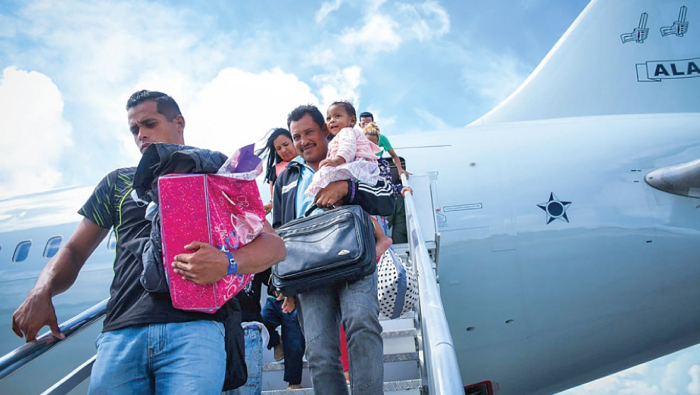
New York City/Panama City: An estimated 1.1 million children will need protection and access to basic services across Latin America and the Carribean as a result of the Venezuelan migrant crisis, UNICEF announced.
Humanitarian partners of the global organisation project that up to 4.9 million people in the region. These include Brazil, Colombia, Ecuador, Guyana, Panama, Peru and Trinidad and Tobago – which will need assistance this year because of political and economic conditions inside Venezuela that are driving regional migration.
“UNICEF is encouraged by Governments’ efforts to jointly seek regional solutions to the challenges posed by largescale migration that are in line with international standards and national laws, such as the protocol adopted by Ecuador to protect uprooted children,” said María Cristina Perceval, UNICEF Regional Director for Latin America and the Caribbean.
UNICEF added that as the crisis inside Venezuela persists and the number of Venezuelan migrants in the region continues to rie, essential services like protection, healthcare and education in host and transit countries are coming under additional strain.
Uprooted children and families face challenges to regularising their immigration status which can affect their access to social protection, healthcare, early childhood development, education, sustainable livelihoods and child protection.
Meanwhile, the lack of comprehensive public policies on migratory issues in host countries is putting children at higher risk of discrimination, violence, family separation, xenophobia, exploitation and abuse.
UNICEF is particularly concerned about reports of xenophobia, discrimination and violence perpetrated against Venezuelan children and families in host communities.
Some migrants – including unaccompanied and separated children, pregnant women, nursing mothers as well as indigenous people – are at increased risk.
“Human rights standards call for States to allow children entry and registration as a precondition for carrying out initial protection assessment procedures,” said Perceval.
“Even when they are unaccompanied and without official documentation, they should be immediately directed to specialized personnel, who can assess their protection needs,” she added.
According to UNICEF, registering children on the move is the first step in guaranteeing their rights. Information resulting from the registration process also provides States with valuable information to better plan and budget their response.
UNICEF has appealed for $69.5 million to meet the needs of uprooted children from Venezuela and those living in host and transit communities across the Latin America and Carribean region.
UNICEF’s response involves working with national and local governments, host communities and partners to ensure access to safe drinking water and sanitation, protection, education and health services for uprooted children and those in vulnerable communities.